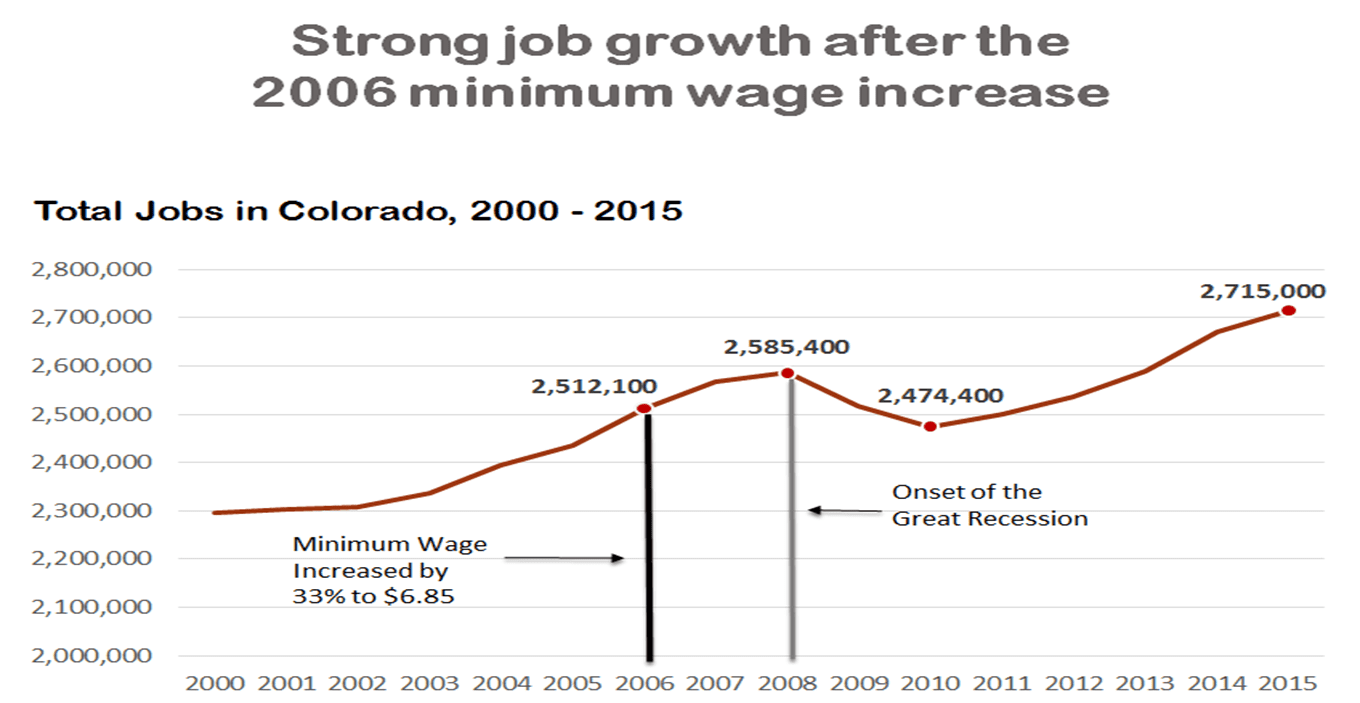A summary of the list of recommendations on the implementation of the OBBBA in Colorado regarding public benefits systems and work requirements.
Recent articles
CCLP testifies in support of Colorado’s AI Sunshine Act
Charles Brennan provided testimony in support of Senate Bill 25B-004, Increase Transparency for Algorithmic Systems, during the 2025 Special Session. CCLP is in support of SB25B-004.
Coloradans launch 2026 ballot push for graduated state income tax
New ballot measure proposals would cut taxes for 98 percent of Coloradans, raise revenue to address budget crisis.
CCLP statement on the executive order and Colorado’s endless budget catastrophe
Coloradans deserve better than the artificial budget crisis that led to today's crippling cuts by Governor Jared Polis.
Raising the Wage is fair and smart

Nearly 480,000 hardworking Coloradans would get a much-needed boost in earnings if Colorado voters approve a November ballot measure that raises the state’s minimum wage to $12 by 2020. Along with strengthening the financial security of many Colorado families, the measure would also spur economic growth and increase consumer spending.
As a coalition partner in the Colorado Families for a Fair Wage campaign, the Colorado Center on Law and Policy strongly believes this important ballot measure is both fair and smart. Here are a few reasons why:
Raising the minimum wage is fair
Currently, minimum wage workers earn $8.31 an hour — or less than $300 a week.Throughout the 1960s and 1970s, a full-time, minimum-wage job kept a family of two above the poverty line. That is no longer true today.
According to CCLP’s Self-Sufficiency Standard for Colorado, a single adult working a full-time, minimum-wage job would fall short of his or her basic needs in most parts of the state. Furthermore, there is not a single county in Colorado where a parent could support even one child while working a minimum-wage job without relying on public assistance. The same holds true of families with two working adults and two or more children.
Colorado workers who would receive a raise from the ballot measure don’t fit common perceptions of low-wage workers. Many have the mistaken impression that minimum-wage workers are teenagers working their first job. However, the vast majority of minimum-wage earners (86 percent) are over the age of 20; about one-third are at least 40; nearly 30 percent have children; just over half work full-time and half have attended some college or have a college degree.
Raising the minimum wage is smart
The impact of reasonable, phased-in minimum wage on employment and prices has been studied extensively. The best available research has consistently shown that raising the minimum wage has little or no negative effect on employment and very little impact on prices. In fact, raising the earnings of low-wage workers actually improves job retention (a win for employers) and spurs economic growth (also a win for employers) because low- and middle-wage earners are more likely to spend their pay increases at local businesses.
But we don’t have to rely on the data from the 26 states and 29 cities across the country that raised their minimum wage in recent years to understand the impact on jobs. Colorado has been down this road before —successfully. In 2006, Colorado increased the statewide minimum wage from $5.15 to $6.85 — a 33 percent increase over one year. Between 2006 and 2008, Colorado added over 70,000 jobs to the statewide economy. (See the chart to visualize this economic trajectory). Also, both urban and rural areas saw an increase in employment following the 2006 wage increase.
The proposal on the November ballot calls for a less than 10 percent average annual increase in the minimum wage until it reaches $12 in 2020 – making it an incremental increase that will ultimately help workers and businesses alike.
We need an economy that works for everyone. About 600,000 Coloradans, just over one-quarter of the labor force, earn less than $12 an hour. Meanwhile, the lowest-wage workers in the state — those at the frontlines of our economy —earn 5 percent less today than they earned in 2000, despite the ever- increasing cost of living in this state.
Very simply, raising the minimum wage makes good on the promise of work as a pathway out of poverty and will spur economic growth.
CCLP wholeheartedly supports this ballot measure and is proud to be an integral partner in the Colorado Families for a Fair Wage campaign.
In the weeks and months leading to the November election, we will continue to build the strong factual case for raising the wage and encouraging Coloradans to vote yes for Colorado’s future.
– By Michelle Webster
